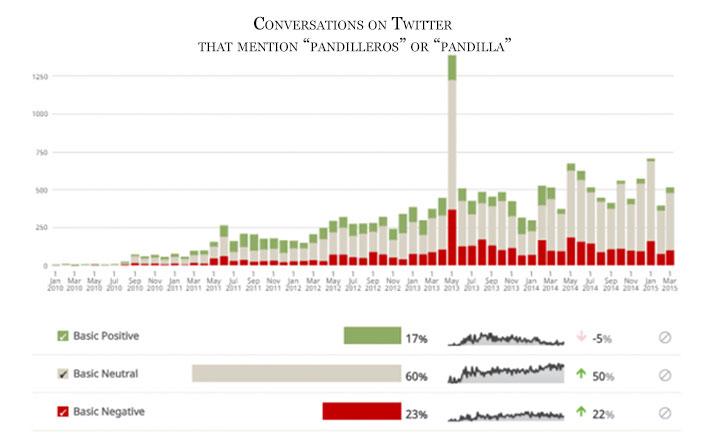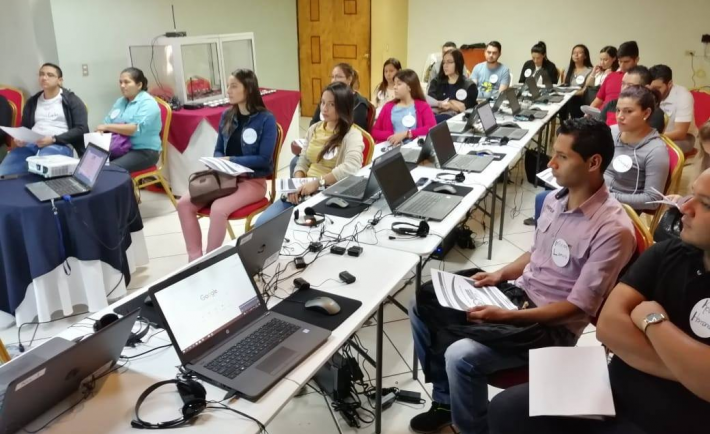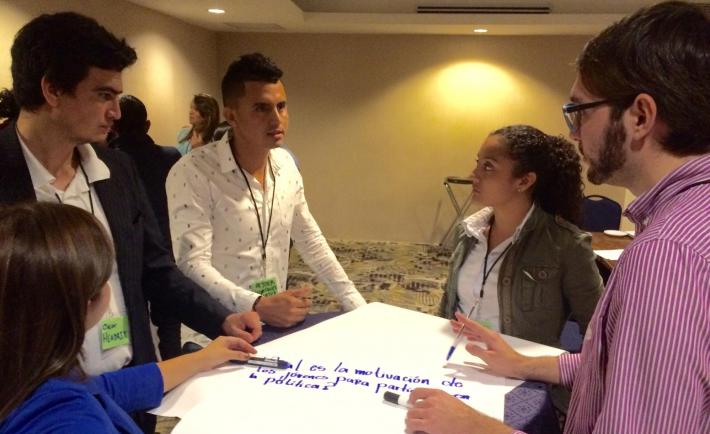My seatmate pulled out her phone the moment our packed plane touched down in El Salvador three days before the country’s February 3 presidential elections. She began furiously scrolling through her Facebook feed, her face lit up with campaign slogans, articles and the smiling faces of candidates Nayib Bukele, Carlos Calleja and Hugo Martinez. Peering over her shoulder, I watched as she punched out a comment lambasting corrupt status-quo politicians. “El Salvador doesn’t need another leader who steals from us,” she typed. “Bukele deserves a chance.” The goal of my trip to El Salvador was to assist our local partners with a USAID-funded election-day observation. NDI supported a consortium of Salvadoran universities and a civil society organization, together called Observador Electoral 2019, to recruit, train and deploy 850 Salvadoran election observers to monitor a statistically representative sample of 700 polling stations nationwide.
Inside the Cueva: My Experience Observing El Salvador’s 2019 Presidential Election
Youth are driving change in Latin America
Twelve young Latin American political leaders and activists recently gathered in Guatemala for an NDI-led workshop on youth political participation. Conversations ranged from what motivates youth to get involved in politics, to how sociocultural norms about youth affect their work, and what tactics youth have used to elevate their political voices in their home countries of El Salvador, Colombia, Guatemala, Honduras, Nicaragua and Mexico. Amidst widespread myths about youth political apathy, these diverse young activists represent a generation that is motivated to build more inclusive, democratic societies.
Promoting Democratic Governance of the Security Sector

Members of the Defense and Security Commission of Burkina Faso's National Assembly meet members of the armed forces during an informational visit to a military base in Kaya.
Violence and crime pose serious threats to citizen security. A lack of response to these threats from authorities erodes public trust in government institutions and weakens prospects for stable democracy. Maintaining the peace and ensuring the security of citizens is necessary for a democracy to develop and endure. Likewise, democratic institutions, such as parliaments, media and civil society, help guarantee a focus on citizen interest and public good, especially related to civilian oversight of the security sector. Threats to citizen security are particularly notable in West Africa’s Sahel region and Central America’s Northern Triangle, areas where NDI works to bridge the gap between citizens’ security needs and the state’s ability to meet them.
Social Media Insights on Crime and Violence in Latin America and the Caribbean

Social media analytics on crime and violence in Honduras. The colors represent the sentiment -- positive, negative or neutral -- associated with the context in which the words pandilleros (gang members) and pandilla (gang) were used.
The words “crime” and “violence” seemingly go together when talking about the Northern Triangle countries of Central America (El Salvador, Honduras and Guatemala). The words “data” and “hackathon” go together when discussing technical innovation, intricate computer applications and groups of hackers writing computer code to create the next billion-dollar application. Rarely do these four words merge on the same plane, but when they do, opportunities abound for conversations that have lots to do with innovation and more to do with citizen security and social development. I had the opportunity to take part in such conversations during a USAID-organized hackathon on April 30 and May 1, focusing on security levels in Central America and the Caribbean.


